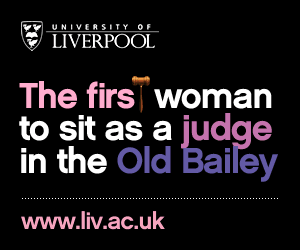How do I choose my university destination?
Making a decision about where you want to study
Choosing which university you will go to and what course you will do represents a major turning point in your life. Your decision will affect not only what you do for the next three or four years, it could set the course for a good part of your life. Not surprising therefore that most 17 and 18 year-olds find this a terrifying and worrying time.
But, take heart. Every big decision becomes easier to make if you split it down into smaller decisions and build up an action plan to help you narrow down your choices into a short list.
Here is out guide on how to start thinking about university locations, courses and the type of student life that will suit you best.
Choosing your university
The decision of where to go and what to study has to start somewhere but you need to consider both these strands individually and then bring them together. We’ve provided starting points for both.
What kind of universities will I like?
 This is a difficult question to even think about if you’ve never actually been to a university. So, the first step is to go and see one. Most universities have open days in the autumn term and you can go on these the year before you are applying, or the year you apply, or both! Don’t worry about going to a uni that you might attend – just get out there and find out more about what a university does and what it feels like to be in one.
This is a difficult question to even think about if you’ve never actually been to a university. So, the first step is to go and see one. Most universities have open days in the autumn term and you can go on these the year before you are applying, or the year you apply, or both! Don’t worry about going to a uni that you might attend – just get out there and find out more about what a university does and what it feels like to be in one.
Home or away?
Before you start to think about specific courses or individual institutions, get some idea of your geographical preferences. Do you want to break away and be independent and go far from home?
Anna, a student from a small village in Derbyshire, had the ambition of studying at a university in London for as long as she could remember. “Even before I had any clue about what subject I wanted to specialise in, or which university I liked the best, I knew that I wanted to be in or near London. That still gave me a lot of choice but it also meant I started with a shorter list to choose from.”
Other students may want to live at home and attend a university nearby. This makes good financial sense for some while for others, this may work better with family commitments.
If it’s away, check out the home run
Many students use this opportunity to live away from home – it’s exciting and scary but it’s a good preparation for the big, bad world, without some of the pressure. But remember that you will need to get home and get back at each end of each term – so that’s at least 6 one-way journeys each year even if you don’t go home for the weekend ever. Think about the time you are willing to spend travelling (London to Cambridge is an hour with no changes but you would be spending 5 hours getting to Edinburgh), and whether the uni you are thinking about is accessible by train (getting to the University of East Anglia from Stoke takes ingenuity).
What type of university living?
 All universities are individual but there are two main types – city or town universities and campus universities. A campus university has the halls of residence and the university facilities – lecture halls, labs, sports facilities and student bars – all in one place, often in landscaped grounds. Other universities have all these facilities within a town or a city, but the buildings are interspersed with shops, office blocks and housing. Some of the older, traditional universities such as Oxford, Cambridge and Durham sometimes feel like the university has taken over the town. Visit some examples of each and see which you prefer – there are pros and cons of both.
All universities are individual but there are two main types – city or town universities and campus universities. A campus university has the halls of residence and the university facilities – lecture halls, labs, sports facilities and student bars – all in one place, often in landscaped grounds. Other universities have all these facilities within a town or a city, but the buildings are interspersed with shops, office blocks and housing. Some of the older, traditional universities such as Oxford, Cambridge and Durham sometimes feel like the university has taken over the town. Visit some examples of each and see which you prefer – there are pros and cons of both.
It’s also a good idea to check out boring details like types of accommodation, what a typical halls room will be like and how much it’s going to cost. Different universities charge different rents, ranging from £50 per week for a shared room in a smaller city to £150 per week for a studio flat in a university near London.
Be sure to also find out how far the halls are away from the other facilities. If you have a 45 minute bus ride to get to a 9am lecture, that may not be much fun.
Urban versus rural
If you are a city type and know you want to be somewhere as busy as possible, universities based in London, Edinburgh, Manchester and Liverpool will appeal. But if you are a country soul and want wide open spaces at weekends, look for institutions that allow you to get out into the Cotswolds, the Yorkshire countryside or the wilds of Scotland or Wales.
Choosing a university course
The other part of your decision will be to compare courses that interest you at different universities. Tertiary education is very inventive when it comes to courses – you will discover that there are probably thousands to choose from, so you have to begin the narrowing down process here too.
What subject will I study?
Start with what interests you and what you can see yourself doing. Yes, it’s a good idea to consider what might be useful for getting a job, but it’s not good deciding to do accountancy if you can’t bear working with figures and doing maths. If art history or genetics is your passion, look for courses that will take you further.
One major benefit of a university education is that it trains your mind. Although some courses such as nursing and medicine do that AND are vocational (they lead to a job or career), others just work the little grey cells.
A subject choice is not a course choice
Remember when you are starting the process of thinking about university courses that picking a subject is not the end point. One single subject might be available in 30 different universities, all of which offer two or three course choices. Deciding on your subject narrows your next choice down but you have a lot of work to do yet.
Start with the UCAS site and browse the courses that are available. Just scrolling through the choices will give you an idea of the breadth of what’s available. If you know you are interested in sciences, you will see that there are choices way beyond what you can study at A level. Even within one science such as biology, you can do zoology, botany or molecular engineering.
Joint or single honours?
You may be clear about your passion and want to study Business Management and nothing but. Or you may be less clear about your eventual career or life path and decide to do a joint honours. Some universities are more flexible than others; some will allow you to study very different subjects together, such as Music and Chinese.
Narrow down a course list
 Once you have chosen your subject area and you’ve reviewed the courses available within that area, you can start to create a course shortlist. Music students, for example, are usually clear about whether they want to do a Music BA that focuses on performance and theory, or a course in Music Technology, which is more about how music is made and mixed and includes commercial aspects of working in the industry. Once you have decided more about the type of course you are interested in, you can put that into the UCAS course search to find out what universities offer relevant degrees.
Once you have chosen your subject area and you’ve reviewed the courses available within that area, you can start to create a course shortlist. Music students, for example, are usually clear about whether they want to do a Music BA that focuses on performance and theory, or a course in Music Technology, which is more about how music is made and mixed and includes commercial aspects of working in the industry. Once you have decided more about the type of course you are interested in, you can put that into the UCAS course search to find out what universities offer relevant degrees.
Be realistic about your grades
It sounds obvious but within all this, you need to look at universities that have the entrance requirements that fit your academic abilities. You may love a course at Manchester but if it requires AAB and your best hope is CCC, you need to think again. There are good courses out there for all abilities, but don’t run yourself down by gazing hopefully at websites that are out of reach. If you end up doing much better than you’ve hoped, you can always re-apply through adjustment after results day.
Bringing it all together
Once you have completed your thinking on these two strands of your decision, you should end up with a short list of universities offering courses that you are broadly interested in. You need five choices for your application, so it’s a good idea to have 20-30 at this stage.
Take a look back at your preferences for geographical location and campus versus town/city. That should knock a few off the list, giving you a more sensible list of 15-20.
Do some specific open day visits
This is when your university visits really come into their own. You now need to go to see the universities that most appeal to you on paper, if you haven’t been there already.
 Alex was convinced he wanted to go to a campus university (we won’t embarrass them by name dropping). “This institution offered exactly the course I wanted to do and it was just over an hour away from home by train and the facilities on the website looked amazing, but I had never been there. I went on an open day visit early in the October before my application was due in and it was a huge let-down. I don’t know why but it just didn’t ‘click’ for me. The halls of residence were cramped, the lecturers I met seemed a bit remote and a couple of the students I met weren’t really very enthusiastic. The following week I went to see my second choice – it was three hours from home and the uni was a town campus. What a difference – the tutors who taught the course I was interested in were friendly, the students obviously loved their course and it was exciting to be in the hustle and bustle of a city environment.”
Alex was convinced he wanted to go to a campus university (we won’t embarrass them by name dropping). “This institution offered exactly the course I wanted to do and it was just over an hour away from home by train and the facilities on the website looked amazing, but I had never been there. I went on an open day visit early in the October before my application was due in and it was a huge let-down. I don’t know why but it just didn’t ‘click’ for me. The halls of residence were cramped, the lecturers I met seemed a bit remote and a couple of the students I met weren’t really very enthusiastic. The following week I went to see my second choice – it was three hours from home and the uni was a town campus. What a difference – the tutors who taught the course I was interested in were friendly, the students obviously loved their course and it was exciting to be in the hustle and bustle of a city environment.”
Don’t let friends or hearsay influence you
 If you want to try for Oxford or Cambridge or one of the Russell Group universities and you have the predicted grades, don’t be put off if you friends or family or teachers think it’s a step too far. Universities are now much less elitist – you don’t have to go to public school or have uber rich parents to get in – you just have to be very able.
If you want to try for Oxford or Cambridge or one of the Russell Group universities and you have the predicted grades, don’t be put off if you friends or family or teachers think it’s a step too far. Universities are now much less elitist – you don’t have to go to public school or have uber rich parents to get in – you just have to be very able.
You also need to avoid the trap of going where your friends are going. Yes, it is daunting to go somewhere completely new where you won’t know anyone. But making new friends is one of the major benefits of university. Going with a friend may make you less able or willing to get out there and mix.
Talk to students and tutors on your course
 Once you have really narrowed down your choice to a handful of specific courses at individual universities, don’t just visit the place, ask to see some of the tutors and lecturers. This isn’t to earn you brownie points (although it will show that you are keen), it’s to find out more about them before you make your final decision. If the lecturers are keen, you find them interesting and enthusiastic and they talk about work that appeals to you, this is a very good sign.
Once you have really narrowed down your choice to a handful of specific courses at individual universities, don’t just visit the place, ask to see some of the tutors and lecturers. This isn’t to earn you brownie points (although it will show that you are keen), it’s to find out more about them before you make your final decision. If the lecturers are keen, you find them interesting and enthusiastic and they talk about work that appeals to you, this is a very good sign.
Talking to first or second year students on the course is also a hugely eye-opening experience. You can ask what it’s like, what they’ve enjoyed, what they don’t like, what advice they can offer. You can also ask about the halls of residence and the accommodation and get some useful inside info for when you apply.
Check out the small print
As well as getting the personal side of what studying the course might be like, be sure to look up the detail that will be available on the university website. This will spell out what is included in each module and exactly what you will be studying. Make sure there are no nasty surprises because you only looked at what was happening in term 1...
Narrow down to your top 5
 It’s hard work but worth it when you know you have done the ground work properly and you have narrowed down your choice of course and university to the five you will put down on your UCAS application.
It’s hard work but worth it when you know you have done the ground work properly and you have narrowed down your choice of course and university to the five you will put down on your UCAS application.
The last step is putting them in order of preference and here you have to go with your gut feeling. After visiting and checking out the course details, you will probably be able to do this without too much angst.
Good luck!



